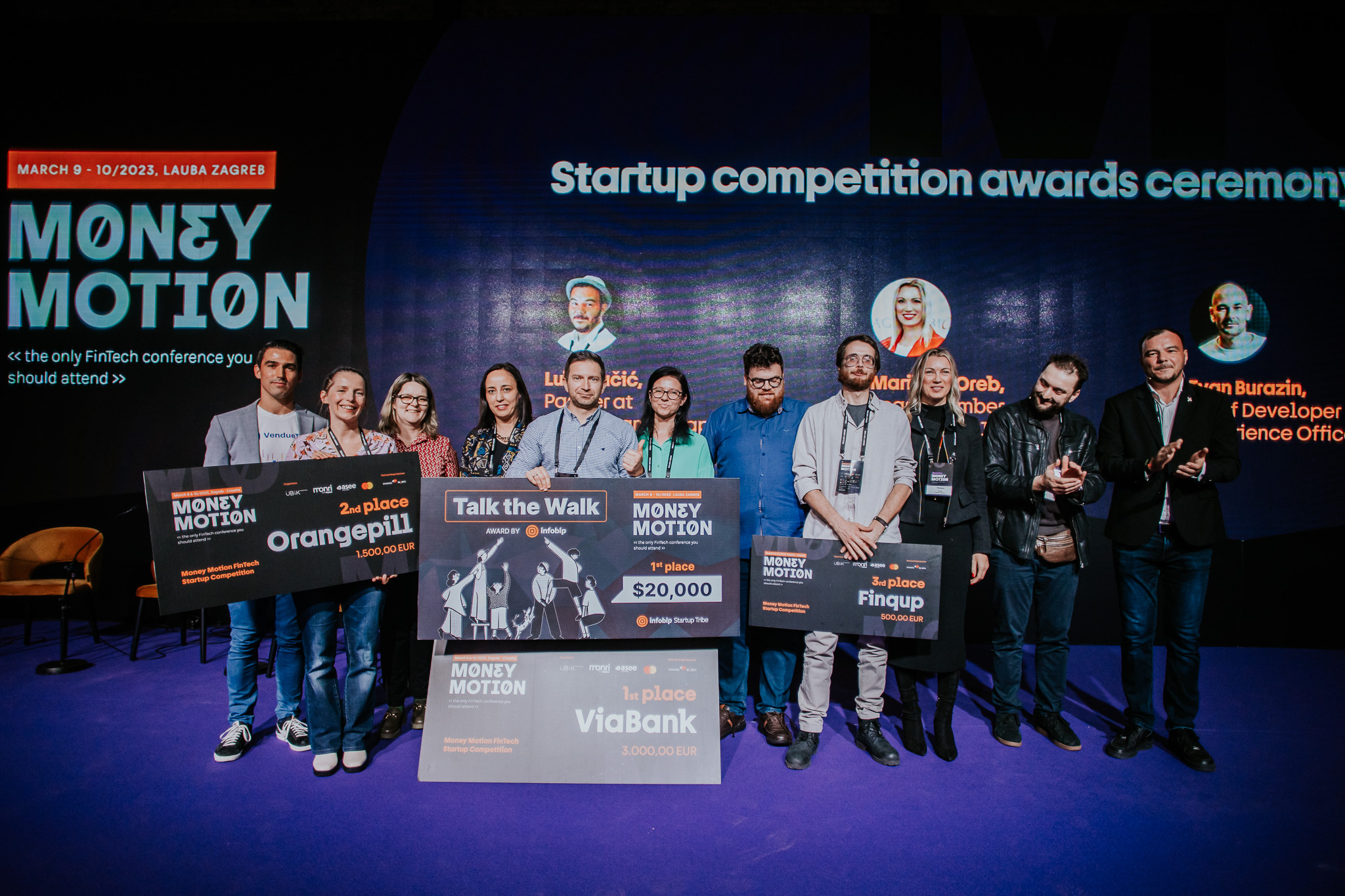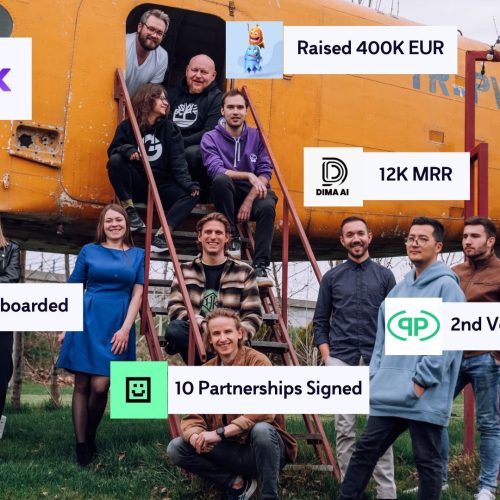Investments in financial technologies experienced a significant decline last year. In the third quarter of 2023, the value of investments decreased by 36 percent compared to the previous year, with a total of 6 billion dollars invested in fintech companies and their new solutions on the market, as concluded by an analysis from S&P Global Market. Alongside the decline in invested capital, the number of transactions also decreased.
However, experts caution that these are positive developments and may indicate a serious maturation of the fintech market. Despite the decrease in the number and size of investments, experienced startups, already in later rounds of capital attraction, maintained their volume and number of investments, regardless of the rest of the industry.
However, a new investment cycle is starting in fintech startups that can prove their growth, sustainability, and innovation in solving specific user and societal problems, as confirmed by a new report from the global consulting company McKinsey, announcing the maturation of the entire fintech market.
Teams already achieving this with their solutions will have the opportunity to join the Money Motion Startup competition again this year. The top 10 applications will be selected to pitch their business solutions and plans before a jury of six investors and industry experts. The top three startups will share a prize pool of 10,000 euros, and their names will be heard by more than 2,500 attendees at this year’s conference, taking place on March 21st and 22nd at the Zagreb Fair, Zagreb, Croatia.
All startups working on technological solutions in the fields of banking, financial management, investments, insurance, crypto trading, and other financial technologies are invited to apply for the competition on the conference’s official website.
Fostering innovations in the financial world
The Money Motion Startup program and competition as a separate entity on its stage were created with the organizers’ desire to leverage their knowledge, connections, and resources to bring together all the key steps for the success of FinTech startups in one place.

Each of them aims to change the world and become a successful corporation, believes Luka Sučić, co-founder of Money Motion. Corporations are attracted to innovative ideas from startups that have the potential to disrupt their business models one day. However, it often happens that a corporation, due to fundamentally different functioning and its requirements, can quickly stifle a startup with a small team.
“That is precisely why we designed the Money Motion Startup program. We have experience in startups but also in working in corporations, and we know how to help both sides find a common language. Through the Money Motion Startup competition, a startup will not only gain exposure but also receive crucial feedback from people to whom they will soon offer their services,” he says.
According to the Croatian entrepreneur, networking is the last but not negligible part of the story. “Money Motion is neutral ground where startups and corporations can mingle without either side feeling threatened or out of place.” he points out.

The first Money Motion conference last year, sold out a week before its start, brought together over 1300 attendees from 12 countries around the world. Prominent international figures such as Andrius Bičeika, partner at Revolut, a leading digital bank, Takeshi Kito, successful entrepreneur and vice president of the Japanese FinTech Association, and Matteo Rizzi, founder of FTS Group, a global platform supporting investors and entrepreneurs in the FinTech world, along with industry leaders in the region, presented the most important events, challenges, and innovations in the market.
“Being recognized by the amazing group of talented people behind Money Motion is the largest prize you can get, not the money or credits,” shared Dime Galapchev, founder and CEO of Macedonian fintech startup FinqUp, one of the winners of last year’s edition.
From banking and personal finance to cybersecurity and AI
MoMo2024 is expecting twice as many participants with even more international speakers this year. Following the success of the first edition, main stage speakers returning to the conference include Andrius Bičeika, Panagiotis Kriaris, FinTech expert and business development manager at Unzer, a rapidly growing platform for international payments, and Balázs Békeffy, CEO of OTP Bank. They will be joined on stage by Meeri Savolainen, founder and CEO of the Berlin-based insurance technology pioneer INZMO, Péter Csányi, Deputy CEO and Chief Digital Officer, and member of the Board of Directors of OTP Group, and Aleksandra Babić, Director for B2B and Product Marketing for Europe at Mastercard.

The conference will cover all relevant industry topics from banking and personal finance, privacy and cybersecurity, artificial intelligence and blockchain, to digital identity, InsurTech, open banking, and regulatory technology. The exhibition space will span 1500 square metres, and a significant addition is an extra stage that will transform into a discussion platform for the latest technologies and potential trends after the first day of the startup program.
Applications for the Startup Pitch, more about the Startup program, the main and brand new FinTech 2030 stages, and tickets for the conference can be found on the conference’s official website. Currently, Early Bird tickets are on sale for 199 euros and student tickets for 49 euros.
In an interview with IT Logs, Damir Čaušević, one of the conference’s co-founder and CEO of Monri Payments, talks about the opportunities that are out there for those that will participate at Money Motion.

IT Logs: How does participating in the Money Motion Startup competition contribute to the growth and visibility of startups?
Damir Čaušević: Money Motion’s startup stage is the heart of FinTech innovation. Your idea and solution can be presented to 2.500 people from the industry, and there is a big chance that someone potentially crucial to your business will hear you. Not just while pitching on the stage but maybe just during informal networking.
According to Crunchbase analysis, there is a significant decline in global startup investments. In 2023, the total investment value in startups was 38% less compared to 2022.
This only strengthens the need to take advantage of every opportunity to boost your startup, and MoMo is definitely one of them. Being selected as a participant or finalist in a reputable startup competition like Money Motion can validate your business idea. It can enhance your credibility in the eyes of potential investors, customers, and partners, helping you to stand out in a crowded marketplace and opening that door just a little bit wider.
Our own experience perfectly highlights that transitioning from the startup phase and entering a partnership with the right company can be crucial for accelerated growth and success.
Through our exit with Payten, Monri not only experienced rapid growth but also ventured into new markets. Our team expanded significantly, and we successfully completed three acquisitions, leading to a remarkable increase in revenue. We now proudly hold the title of market leader in POS in Croatia and dominate online card processing in Croatia, Bosnia and Herzegovina, Serbia, and Macedonia while taking on new markets. It all began with a small startup proving strategic partnerships can make all the difference.
Of course, being in the right place at the right time sometimes is all it takes. As organizers and main sponsors of Money Motion and someone who has been through it all, we are on a mission to be that crucial platform for startups in the fintech industry.
Stepping onto MoMo’s startup stage invites media attention and opens the door to potential game-changing visibility. Being featured in the media amplifies your startup’s presence, catching the eyes of customers, partners, and investors who are crucial to your journey.
Picture this: The jury at MoMo is a powerhouse, with heavyweights from regional and international VCs alongside industry experts. As you pitch, their feedback becomes the „secret sauce“, fine-tuning your pitch and business model. This isn’t just about impressing them; it’s about crafting a narrative that resonates, making your startup more compelling not only to the jury but to a broader audience of potential investors and customers. It’s not just a pitch; it’s a chance that propels your startup into the spotlight.
Beyond the monetary prize and exposure, what other forms of support or resources does Money Motion provide to the participating startups to help them on their journey?
Money Motion offers access to a network of experienced mentors and industry experts who can provide guidance, advice, and valuable insights tailored to each startup’s specific challenges and opportunities. Mentorship can be instrumental in helping startups navigate obstacles, make strategic decisions, and accelerate their growth, and this is what Money Motion is all about
I am also thrilled to share the exciting news of our partnership with one of the world’s largest IT companies. This collaboration will provide finalists of the Money Motion startup competition with a unique fast-track to join their exclusive Founders Hub. The Hub offers a bounty of benefits, including up to $150,000 in services, invaluable support, mentorship, and co-selling opportunities. We’re currently in the last stages of sealing this impactful partnership, and I can’t wait to unveil this opportunity to the FinTech startup community. Definitely stay tuned for more details.
How do you think fintech startups can differentiate themselves and stand out in a competitive landscape?
Fintech startups must focus on innovation, user experience, and unique value propositions to differentiate themselves and stand out in a competitive landscape. This might involve offering groundbreaking technologies, designing intuitive interfaces, providing exceptional customer service, or targeting underserved niche markets.
The profitability aspect is something that must also be taken into consideration while creating a unique value proposition. A clear overview of future revenue streams, cost-efficiency without compromising quality, and scalable business models are key things that for sure help all startups differentiate themselves.
The majority of fintech startups get stuck on whitepapers and blueprints. Pushing towards a minimum viable product, a basic version to satisfy the early customer needs, is something I would suggest to everyone who wants to stand out.
And, of course, with all said in mind, the key to success is very often found in strategic partnerships coupled with the spotlight opportunities provided by platforms such as Money Motion, where media visibility and networking, mentorship, and impactful feedback can be the things that lead your startup to success.
Considering the current macroeconomic situation, what specific challenges and opportunities do you see for fintech startups?
The current macroeconomic situation presents a real cocktail of both challenges and opportunities for fintech startups.
Uncertainty in the global economy, exacerbated by geopolitical tensions, trade disputes, and ongoing cybersecurity threats, are some of the things all fintech startups should take into consideration.

The economic uncertainty has already led to decreased consumer spending in some geographies, which can certainly represent a challenge for various fintechs, whether from their user or investor perspective. The logical response of all governments to economic and security challenges usually comes through changes and the adoption of new laws and regulations. As fintech startups operate in highly regulated industries, changes in regulatory frameworks can always pose challenges for compliance, licensing, and market entry.But, where there are challenges, there are also opportunities.
The COVID-19 pandemic has accelerated the shift towards digital channels for consumer spending and financial services; this created needs of both consumers and businesses, which still have not been met.
The pandemic also showed how important it is that businesses and individuals have access to digital financial services and products. Hence, fintechs today have a great opportunity to promote financial inclusion in banking, lending, and investment for underserved populations.
Regulatory challenges mentioned could also be faced with an opportunity. With traditional lenders tightening credit standards, alternative lending platforms and fintechs can fill the gap by providing access to capital.













